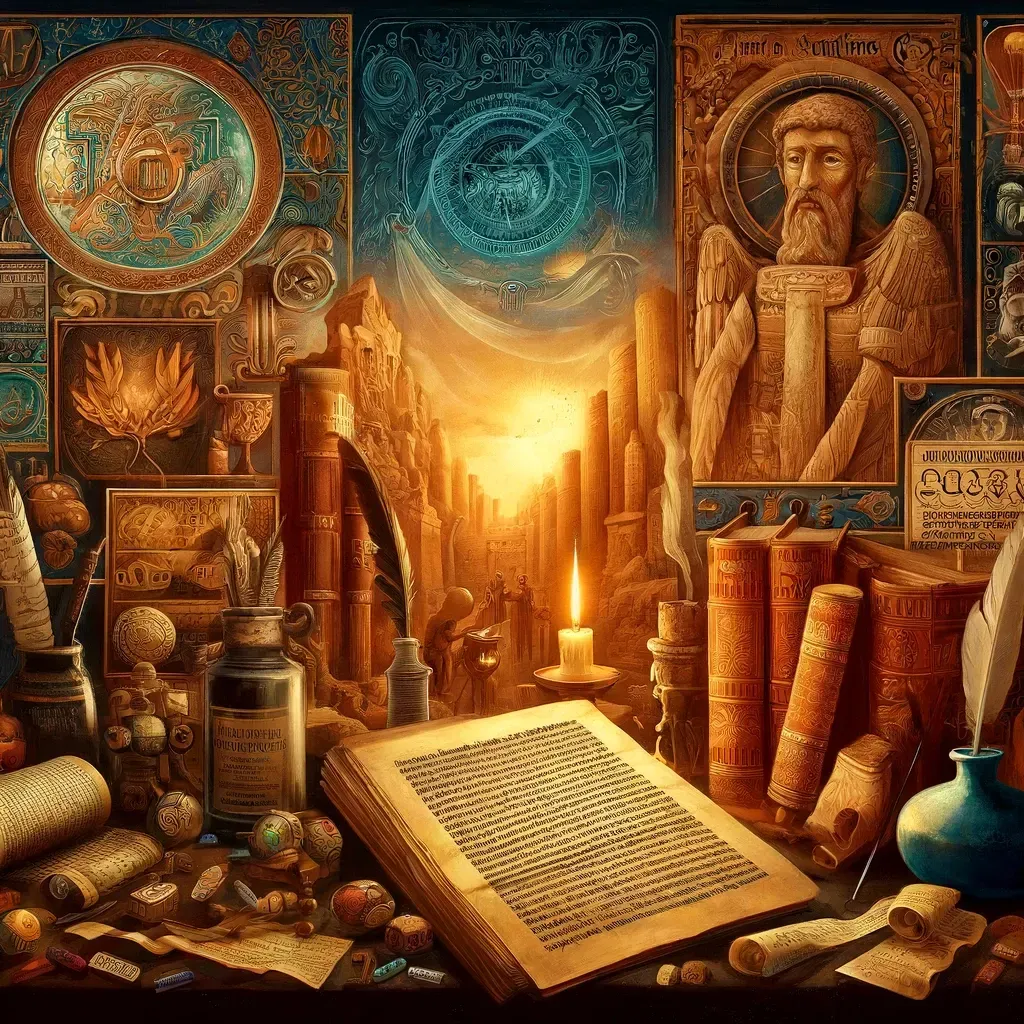BLOGS

Exploring the Vast World of Literature: A Beginner's Guide to Its History, Importance, and Genres
Exploring the Vast World of Literature: A Beginner's Guide to Its History, Importance, and Genres
Introduction
Ever marveled at the power of a well-crafted story or poem? Literature is not just an artistic expression but a vital part of human culture and intellectual history. In this comprehensive guide, we'll explore the vast world of literature—from its ancient origins to its significant impact on modern society, diving into a variety of genres that continue to enchant and educate readers worldwide.

History of Literature
Ancient Beginnings
Literature's origins trace back to ancient civilizations, where storytelling was both a form of entertainment and a means of passing down wisdom and tradition. Texts like the "Epic of Gilgamesh" from Sumer and the ancient Egyptian "Book of the Dead" are not merely stories but also windows into the lives and beliefs of early humans.
The Classical Influence: Greeks and Romans
The literary contributions of Greece and Rome have shaped the narrative structure and thematic exploration of modern literature. Works such as Homer’s "Iliad" and "Odyssey" introduced epic tales of heroes and gods, while the tragic and comedic plays of Sophocles and Plautus laid the groundwork for drama as a genre.
The Medieval Tapestry
Medieval literature, marked by works like Dante’s "Divine Comedy" and Chaucer's "Canterbury Tales," reflects a world where spirituality and earthly life intertwine. This era blends folklore with religious and philosophical insight, paving the way for a unique narrative form that influences countless narratives in the centuries to follow.
The Significance of Literature
Mirror to Society
Literature reflects the societal values, conflicts, and aspirations of its time. Through the power of narrative and character, literature acts as a societal mirror, offering insights into the human condition and societal evolution, from Dickens’ critique of Victorian England to Toni Morrison’s exploration of American identities. For a deeper dive into how literature highlights these societal gaps, consider listening to our podcast: Literature Gaps and How to Address Them, which explores strategies for identifying and addressing gaps in literary research.
Tool for Personal Development
Engaging with literature can enhance personal growth by fostering empathy, critical thinking, and an appreciation for the nuanced experiences of others. The introspective journey literature offers helps individuals navigate their own lives with greater depth and understanding. If you're looking to structure your literature review effectively, incorporating these insights, check out our blog post: Architecting Ideas: Structuring Your Literature Review for Clarity and Cohesion on organizing literature for clarity and cohesion, which provides valuable guidelines and examples.
Literary Genres Explained
Fiction: Beyond Reality
Fiction genres range from science fiction and fantasy to historical and literary fiction, each offering different explorations of reality, human nature, and the universe. Authors like George Orwell and Margaret Atwood create worlds that question societal norms and provoke thought.
Poetry: The Art of Expression
Poetry uses concise, evocative language to express deep emotions and ideas. From the structured sonnets of Shakespeare to the free verse of Walt Whitman, poetry transcends the literal, offering a rhythmic and symbolic exploration of life's complexities.
Drama: Literature in Action
Drama brings literature off the page and onto the stage, combining visual art with dialogue and performance. This genre, exemplified by playwrights from William Shakespeare to August Wilson, captures the complexities of human interaction and societal issues in a format that is both immediate and impactful.
Modern Literature and Its Directions
The Rise of Digital Literature
In the digital age, literature has transformed with the advent of e-books, audiobooks, and interactive storytelling platforms. This new era offers unprecedented access and novel ways to experience stories, expanding the reach and influence of literary works.
Literature in a Global Context
Globalization has led to a cross-pollination of literary styles and themes, producing a rich tapestry of works that reflect diverse cultures and perspectives. This global dialogue enriches literature, allowing for a more comprehensive understanding of the human experience across different backgrounds and histories.
Additionally, here's a related YouTube video on Why Your Dissertation Literature Review Should Be Your Priority. It could provide you a multi-faceted understanding of the topic.
Conclusion
The journey through the world of literature is infinite and ever-evolving. It provides not only a reflection of human history and societal movements but also personal insights that are timeless. For those engaged in academic pursuits, especially PhD and doctoral candidates, literature offers invaluable tools for critical analysis and thought.
Embrace the wisdom of literature to enrich your academic and personal journey, and consider how WritersER can help you reach your academic goals in just six months. Click here to get started!
